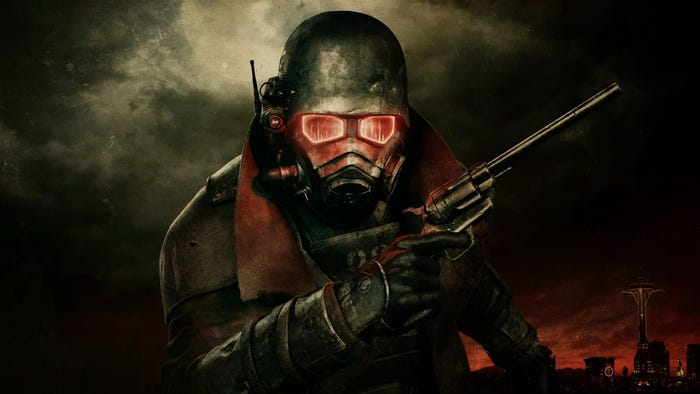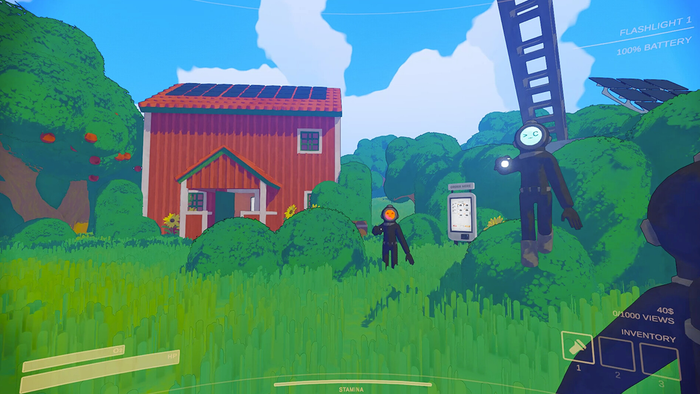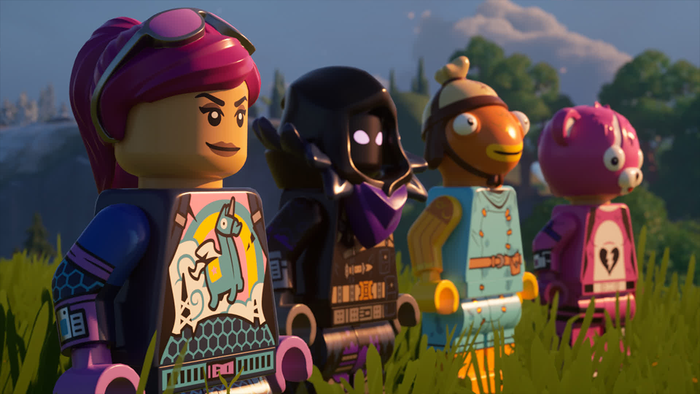Gamasutra UK editor Mike Rose continues Gamasutra's annual year-end roundups series by looking back at the five biggest video game surprises of 2012, including a couple of big-name acquistions.

Gamasutra UK editor Mike Rose continues Gamasutra's annual year-end roundups series by looking back at the five biggest video game surprises of 2012. Surprise surprise - it's time for another list of 2012 goings-on in the video game industry, this time focused on the events, games and buy-outs that made us sit back in shock. There were nice surprises that inevitably caused a stir; head-scratching surprises that brought with them questionable connotations; completely out-of-the-blue surprises that caught us off-guard. A very surprising year all round, in fact. The one thing all these surprises have in common? As each announcement dropped, Twitter and other social media were set ablaze with conversation, arguments and opinion. It's the way of the video game industry!
Double Fine starts the Kickstarter revolution
Before Tim Schafer's Double Fine launched its Double Fine Adventure Kickstarter earlier this year, Kickstarter was a place where smaller indie studios could seek an audience (and hopefully their wallets). I personally didn't know a single person who was even signed up to Kickstarter, let alone was pledging money to video game projects on the platform.  However, following the hugely successful $3.33 million-funded Kickstarter, which came completely out of nowhere and had Twitter all flustered for a good week or so, 2012 suddenly become the year of the video game crowdfunder. Schafer and co. had proved that even big companies could bypass publishers and have a crack at crowdfunding, and hordes of Kickstarter projects started to emerge, as too did the backers -- following the Double Fine Kickstarter, the number of people backing video game Kickstarters jumped by 15 times the original crowds. Of course, there's now huge discussion on what feels like a weekly basis regarding whether all the Kickstarters that keep popping up are being poorly implemented, and Kickstarting for the sake of Kickstarting. However, there's no question that Double Fine's Kickstarter was a huge surprise, and a notable turning point in 2012.
However, following the hugely successful $3.33 million-funded Kickstarter, which came completely out of nowhere and had Twitter all flustered for a good week or so, 2012 suddenly become the year of the video game crowdfunder. Schafer and co. had proved that even big companies could bypass publishers and have a crack at crowdfunding, and hordes of Kickstarter projects started to emerge, as too did the backers -- following the Double Fine Kickstarter, the number of people backing video game Kickstarters jumped by 15 times the original crowds. Of course, there's now huge discussion on what feels like a weekly basis regarding whether all the Kickstarters that keep popping up are being poorly implemented, and Kickstarting for the sake of Kickstarting. However, there's no question that Double Fine's Kickstarter was a huge surprise, and a notable turning point in 2012.
Steam's Greenlight process opens the submission floodgates
Since the launch of Steam in 2003, Valve has always kept rather quiet about how its game selection process works, and what exactly developers can do to breach the hull of PC game mega sales. As we're more than aware of now, 2012 was the year that this all changed, with the debut of Steam Greenlight -- a service that suddenly turned the Steam submission process on its head. No longer could developers simply email Valve and then sit back and pray that they were picked up. Now it was suddenly all down to PC gamers, and whether or not they were willing to click the little thumbs-up button on your game's Greenlight page. The initial surprise announcement was soon engulfed in discussion of how Greenlight would work, who would be successful, whether it would work in the favor of all developers, and what kind of games would be picked up the quickest. It's still early days for the initiative, but the submission process definitely feels a lot more open than it has done for the last nine years.
Zynga fills its mobile hole... for $180 million
It all happened so quickly and so suddenly, that it was impossible not to feel taken aback by what happened to Draw Something studio Omgpop. One moment, it was launching a mobile version of a Pictionary-like Facebook game that had a moderate number of players. The next, it had the number one top grossing game on iOS, and multiple companies looking to swoop in for the buy-out. But it was likely this rush to own Omgpop that saw Zynga paying a whopping $180 million, all simply to own the Draw Something brand and boost its mobile offerings.  In fact, it took just over six weeks from the launch of Draw Something on mobile for Omgpop to go from being a studio that not many had really heard of, to suddenly being worth $180 million to Zynga. It was this purchase that made us question whether Zynga's spending was out of control, and marked a notable point in the social game giant's decline in 2012.
In fact, it took just over six weeks from the launch of Draw Something on mobile for Omgpop to go from being a studio that not many had really heard of, to suddenly being worth $180 million to Zynga. It was this purchase that made us question whether Zynga's spending was out of control, and marked a notable point in the social game giant's decline in 2012.
Sony buys cloud gaming platform Gaikai
It had been rumored for a while that Gaikai was looking for a buyer, and elsewhere there was talk of Microsoft planning to enter the cloud gaming space. Then rather suddenly, Sony announced that it had snapped Gaikai up for a cool $380 million. Sony said that it was planning to use Gaikai's resources to build its own cloud gaming service, and it's looking likely that this sort of service will be built into the next PlayStation home console. This, of course, set of numerous theories all over the internet regarding how the PS4, or even the PS3, could utilize the cloud gaming space. The deal has been very quiet since July, and with Sony's falling revenues from its video game business, you have to wonder how this is affecting its cloud gaming future. Only the future will tell whether this surprise purchase will yield results.
The Walking Dead redefines adventure games
If you'd said a year ago that Telltale's The Walking Dead episodic adventure game would sweep the VGAs this year and be a huge talking point in video game discussions throughout 2012, some would think you were mad. After all, Telltale is a great studio with plenty of good adventure games under its belt, but it has never really produced anything especially Game of the Year worthy. Plus, aren't we all a bit sick of zombies by now?  And yet here we are, toasting the bliss of a storytelling masterclass and eagerly awaiting a second season. The Walking Dead isn't simply just another Telltale adventure game -- rather, it's one of the best implementations of storyline and gameplay splashed together in a video game. It's touted as an experience that twists and turns depending on the decisions you make... except that it actually does change, rather than just saying it does on the back of the box. And if you can truly reach the end of the saga without feeling strongly for the characters, there's perhaps no hope for you. Now we're hoping that by raising the storytelling bar, The Walking Dead's presence will breed a new gaggle of video games that don't feature stories that we'd rather hammer the A button through. We're not holding our breath, but at least we've got season two to look forward to. More Gamasutra 2012 roundups: The 5 trends that defined the game industry in 2012 The 5 events that shook the video game industry in 2012 The 5 most significant video game controversies in 2012 The 5 biggest disappointments of 2012
And yet here we are, toasting the bliss of a storytelling masterclass and eagerly awaiting a second season. The Walking Dead isn't simply just another Telltale adventure game -- rather, it's one of the best implementations of storyline and gameplay splashed together in a video game. It's touted as an experience that twists and turns depending on the decisions you make... except that it actually does change, rather than just saying it does on the back of the box. And if you can truly reach the end of the saga without feeling strongly for the characters, there's perhaps no hope for you. Now we're hoping that by raising the storytelling bar, The Walking Dead's presence will breed a new gaggle of video games that don't feature stories that we'd rather hammer the A button through. We're not holding our breath, but at least we've got season two to look forward to. More Gamasutra 2012 roundups: The 5 trends that defined the game industry in 2012 The 5 events that shook the video game industry in 2012 The 5 most significant video game controversies in 2012 The 5 biggest disappointments of 2012
About the Author(s)
You May Also Like








